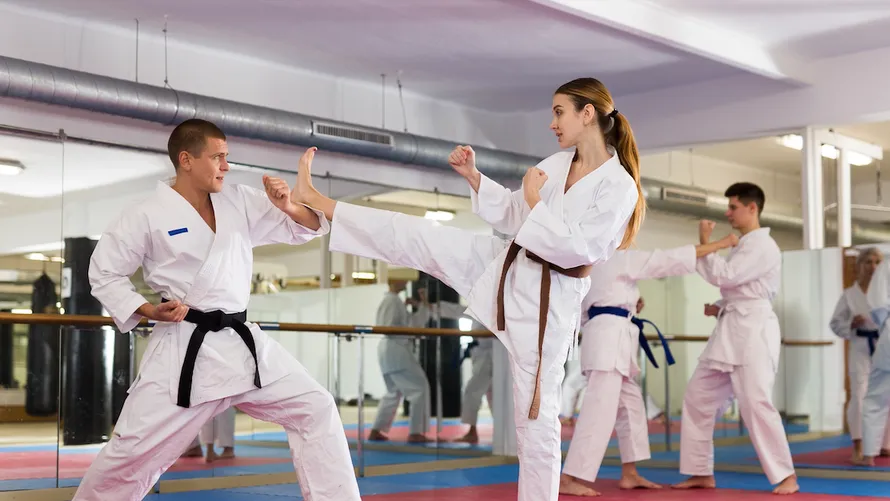March 15 | 2022

Psst … I know you.
No, seriously. I know who you are. If you’re reading this post, you’re likely curious about the wider martial arts world and/or you’re excited to improve yourself. No surprises there.
Here’s what is more important: I know who your training partner is.
Or, at least, I’m sure I could guess some traits of your training partner. The martial arts world is filled to the brim with egos and personalities. That can be a good thing or a bad thing — it depends on who’s asking and what the person’s training goals are.
Regardless, there are some common personality types all martial artists run across.
In fact, out of the handful of personalities listed below, I’m willing to bet you’ve partnered with at least one of them. Here’s the good news: After reading this post, you’ll be ready to ask yourself one of the most important questions a martial artist can ask: What kind of partner am I?
The Know-It-All
Like Jeezy and Ye, you can’t tell ’em nothing. As much as there is to learn in the ginormous world of martial arts, these partners think they have already learned it all. Amazingly, there’s a bigger gap than the one between what they believe they can do and what they actually can do, and that is the gap between how many people they think respect them and how many actually respect them.
The All-or-Nothing
These people have absolute zero chill. Well, either that or that’s all they have. All-or-nothing people seem to know just two modes of training, be it solo or with a partner: working way too hard or not nearly enough.
Perhaps this is why they came to the martial arts — to find balance. We all can stand to have a little more balance in our lives.
The Talker
There’s a Japanese term for these people: kuchi bushi. Mouth warriors.
They talk better than they move or fight. If the keyboard warriors were to appear in front of you in the flesh, this would be them. Often fluent in the language of online trolls, they are experts at making it seem like they’re a bigger threat than they actually are.
During partner drills, it’s quite possible they will spend up to 75 percent of the time talking about what they’ll be doing. If only their arms could move as fast as their lips!
The Braggart
Related to talkers, braggarts can’t help but recount their golden years. You know, they used to move like you when they were your age. Mind you, they had better flexibility and power. And they sparred with less gear and harder blows. And I’m pretty sure their hair was better than yours back in the day.
Funny how those “legendary” skills have disappeared over the years. Good thing they’ve still got so much … professional advice for you during your sparring matches and partner drills.
The Show-Off
Yeah, yeah … we know how fast you can move, but can’t we just work together? When we are sparring or working on tactics, the goal isn’t to “win”; it’s to learn. Unfortunately, a show-off is a one-person show that illustrates how to let ego ruin training.
Take note! Show-offs tend to go especially hard whenever they think the teacher or an audience is watching. This makes sense — after all, they believe martial arts exist to make them look like a badass.
The Best Buddies
Consider these partners to be at the opposite end of the spectrum from show-offs. Whereas show-offs are all about numero uno, best buddies care only about the group. Well, their group, at least.
It’s not unusual to become close friends with the person you regularly punch, kick and choke in class. Problem is, when two people become inseparable, you have to question whether they’re really good at their art or they’re just really good at working with each other.
The Sleeper
They may show up looking like they’re still in the middle of an afternoon siesta, but make no mistake: The second they actually take interest in the drill and wake up, they move like an unchained beast. The problem is getting them to that point.
Believe it or not, they actually do enjoy martial arts training. It’s just that they always have something outside the dojothat is draining their energy.
Of course, these are just a few of the characters you’ll meet on your martial arts journey. The question that should arise is, How would I describe myself? Am I one of them?
Hopefully, you and your training partner would agree that you’re favorable to work with.
